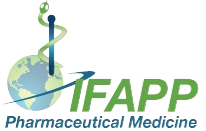The World Medical Association’s Declaration of Helsinki is in the process of being revised. The following amendments are recommended to be incorporated in pursuit of the common goal of promoting health for all.
1. Data-driven research that facilitates broad informed consent and dynamic consent, assuring participant’s rights, and the sharing of individual participant data (IPD) and research results to promote open science and generate social value.
2. Risk minimisation in a placebo-controlled study and post-trial access to the best-proven interventions for all who need them.
3. A future-oriented research framework for co-creation with all the relevant stakeholders.
The Declaration of Helsinki (DoH) of the World Medical Association (WMA) (1), first adopted in 1964, is the world’s most widely recognised ethical principle for medical research involving humans. The WMA began the process of revising the DoH in April 2022, from the last version dated 2013. Research involving humans is a core activity in the development of medicines.
For this reason, the authors have discussed the ideal function of the ethical norm of research involving humans, considering our global experience of the COVID-19 pandemic and other disasters, including war situations. The DoH is a fundamental ethical norm, not guidance for specific changing situations. However, as described below, the drastic changes in both global society and the scientific environment over the past decade have posed an acute challenge to this fundamental norm.
 International Federation of Associations of Pharmaceutical Physicians and Pharmaceutical Medicine
International Federation of Associations of Pharmaceutical Physicians and Pharmaceutical Medicine